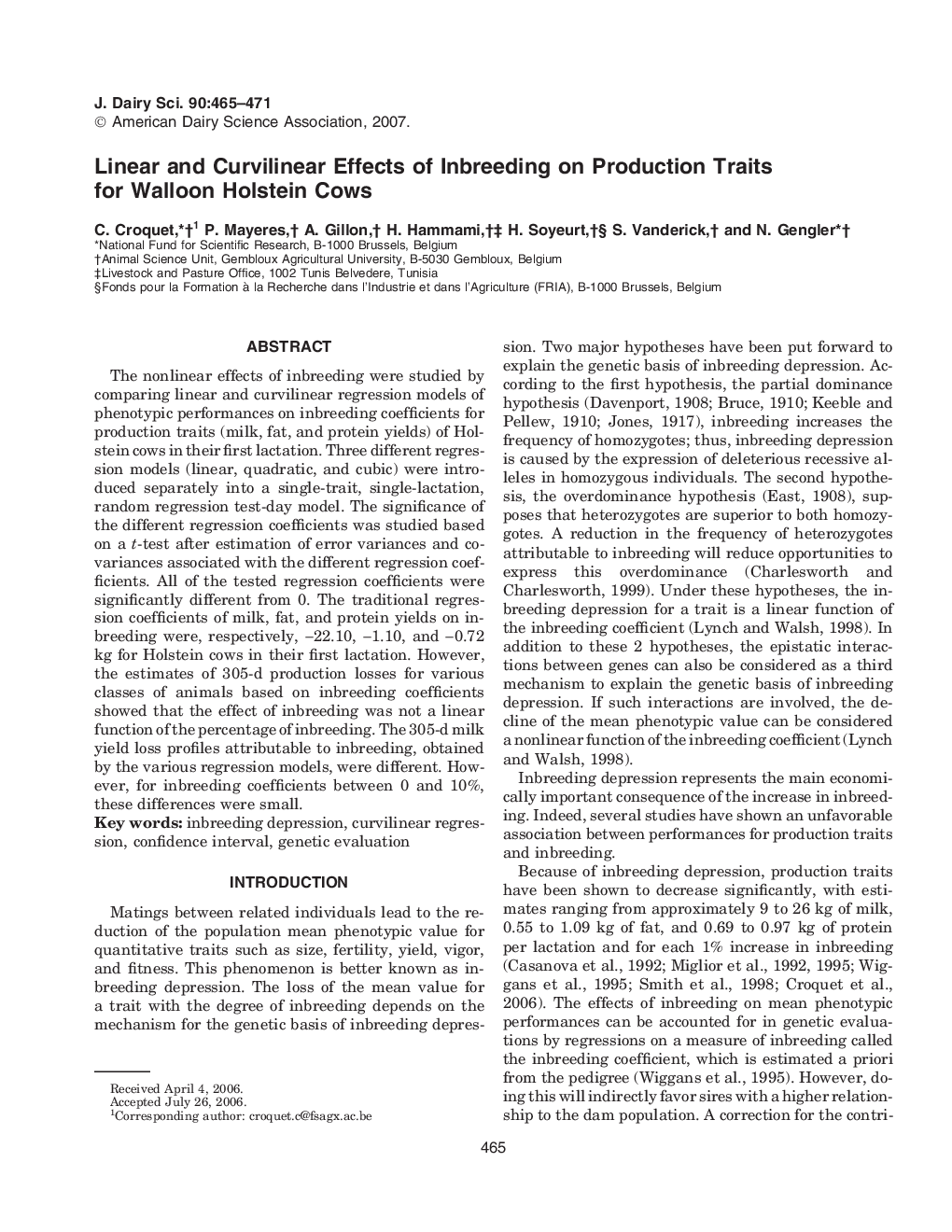| Article ID | Journal | Published Year | Pages | File Type |
|---|---|---|---|---|
| 2440707 | Journal of Dairy Science | 2007 | 7 Pages |
Abstract
The nonlinear effects of inbreeding were studied by comparing linear and curvilinear regression models of phenotypic performances on inbreeding coefficients for production traits (milk, fat, and protein yields) of Holstein cows in their first lactation. Three different regression models (linear, quadratic, and cubic) were introduced separately into a single-trait, single-lactation, random regression test-day model. The significance of the different regression coefficients was studied based on a t-test after estimation of error variances and covariances associated with the different regression coefficients. All of the tested regression coefficients were significantly different from 0. The traditional regression coefficients of milk, fat, and protein yields on inbreeding were, respectively, â22.10, â1.10, and â0.72Â kg for Holstein cows in their first lactation. However, the estimates of 305-d production losses for various classes of animals based on inbreeding coefficients showed that the effect of inbreeding was not a linear function of the percentage of inbreeding. The 305-d milk yield loss profiles attributable to inbreeding, obtained by the various regression models, were different. However, for inbreeding coefficients between 0 and 10%, these differences were small.
Related Topics
Life Sciences
Agricultural and Biological Sciences
Animal Science and Zoology
Authors
C. Croquet, P. Mayeres, A. Gillon, H. Hammami, H. Soyeurt, S. Vanderick, N. Gengler,
